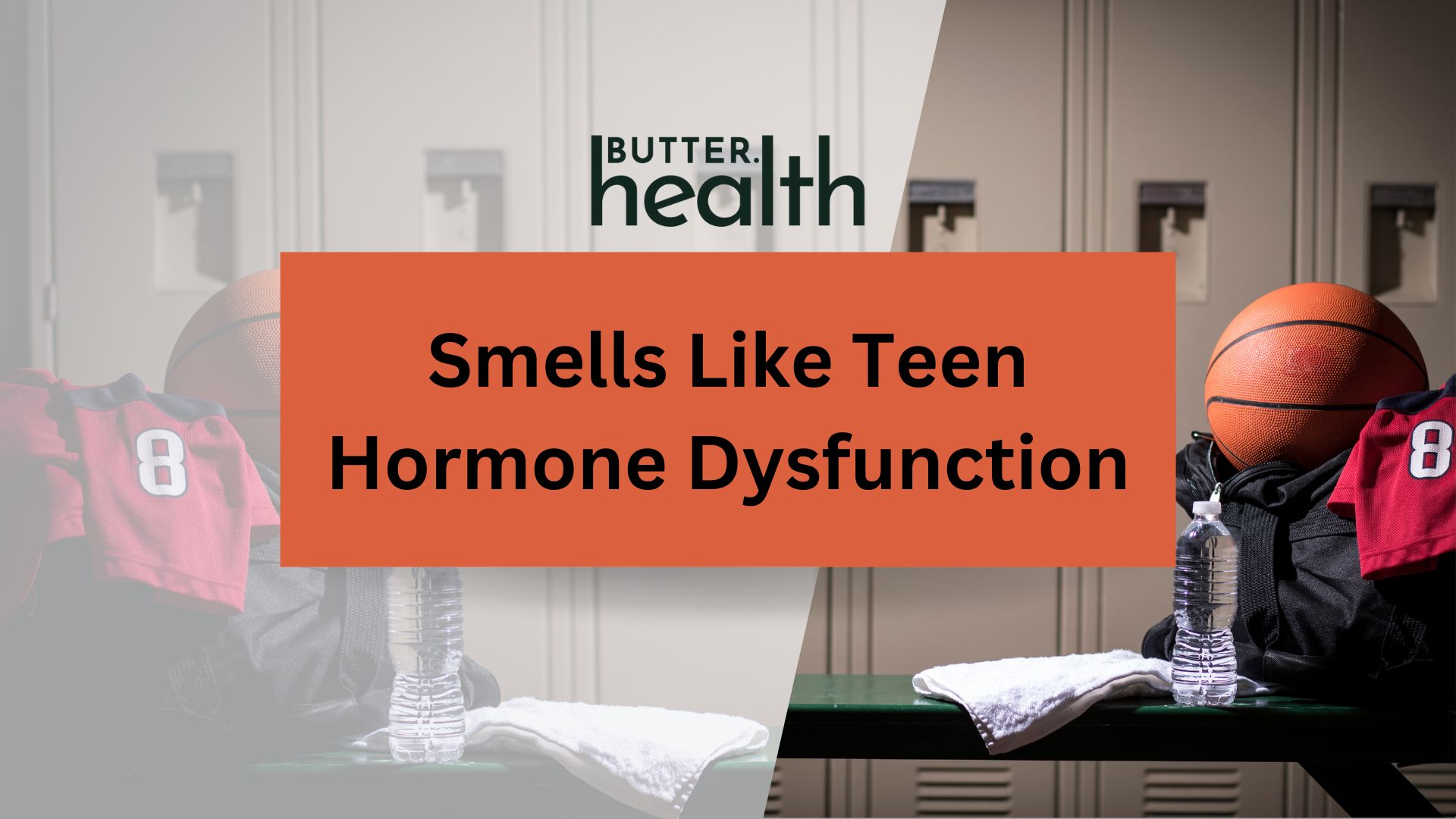My son is turning 13, and we’ve officially entered a whole new parenting stage — hormones, growing independence, and yes, peer pressure to “smell good.”
So when a mom in a group chat suggested cologne as a gift for another 13-year-old, my radar went off because I know what’s in those bottles — and what it can do to a teen’s developing body.
Fragrance products might seem innocent, but they’re complex chemical mixtures that can disrupt hormones, trigger allergies, burden the liver, and affect brain function. And in teens, whose hormones, brains, and detox systems are still developing, the risks are amplified.
Fragrance 101: Why This Matters
“Fragrance” is a legal loophole. In the U.S., a single word on a label can hide dozens (sometimes hundreds) of chemicals. Companies don’t have to disclose them.
Exposure is not just skin deep. These compounds are absorbed through skin, lungs, and even the nose directly to the brain’s limbic system.
Puberty is a critical window. Endocrine disruptors don’t need high doses — just the wrong exposure at the wrong time — to create long-term effects.
What’s Really in “Fragrance”
Phthalates to make scents last longer — linked to lower testosterone in boys, altered thyroid function, earlier puberty in girls, and weight gain.
Synthetic musks that build up in body fat and interfere with hormone receptors and detox enzymes.
Allergens such as linalool, limonene, and eugenol can react with oxygen in the air to form new compounds that are even more likely to trigger allergic skin reactions, asthma, and respiratory irritation.
Volatile Organic Compounds (VOCs) that can form indoor air pollutants like formaldehyde when they react with ozone.
How Fragrance Affects Teens
1) Hormones and Puberty
Phthalates and musks can mimic or block hormone signals, throwing off normal puberty timing.
Imbalances can lead to mood swings, acne, irregular periods, weight gain, and sleep problems.
2) Brain and Behavior
The nose is directly wired to brain areas that control mood and memory.
Fragrance chemicals are known triggers for headaches, brain fog, migraines, and difficulty focusing.
3) Lungs, Skin, and Immune System
Fragrance is a top trigger for asthma flares and allergic skin reactions.
Repeated irritation can make seasonal allergies and eczema worse.
4) Metabolism and Liver Burden
That uses up nutrients (like glutathione, magnesium, and B vitamins) that teens need for growth, hormone balance, and recovery from sports.
Common Sources Parents Miss
🧺 “Fresh” laundry smell from detergents, softeners, scent beads, dryer sheets
💨 Body sprays, aftershaves, deodorants, hair products
🧼 Scented soaps, sanitizers, and lotions
🕯️ Air fresheners, candles, plug-ins, car diffusers
🏫 Classrooms, gyms, or friends’ homes with lingering scents
“But It’s Just a Spritz…”
A daily spritz isn’t just anything.
These chemicals settle on skin, hair, clothes, bedding, backpacks, and car upholstery.
Combined with shampoos, deodorants, laundry products, and room sprays, teens can be surrounded by a low-grade chemical fog 24/7.
What to Do Instead
House Rules
🚫 Make your home a fragrance-free zone. If a label says “fragrance,” “parfum,” or “aroma,” skip it.
🧺 Switch to fragrance-free laundry detergent. Ditch softeners, scent beads, and dryer sheets. Use wool dryer balls to reduce static.
🌬️ Replace air fresheners and candles with open windows, HEPA filtration, and actual cleaning of odor sources.
🧴 Stock fragrance-free, aluminum-free deodorant and other personal care products.
🌿 If using essential oils, use sparingly — “natural” isn’t automatically safe for daily exposure.
Teen-Friendly Swaps
🛡️ Deodorant: Choose aluminum-free and fragrance-free. If scent is non-negotiable, look for one lightly scented with a single essential oil — and don’t use it every day.
💇 Hair products: Opt for fragrance-free gels or pomades.
🪟 Room scent: Teach cleaning and fresh air circulation instead of covering smells.
Shopping Checklist
📜 Look for “fragrance-free,” not “unscented” (unscented products often contain masking scents).
✂️ Choose short ingredient lists and skip “perfume oils,” “aroma compounds,” or “parfum.”
Clean company recommendations (not affiliated): Health Y Sol / Dr. Squatch / VanMan
The Science Is Clear
Phthalates: Disrupt androgen and thyroid hormones; linked with altered puberty timing.
Synthetic musks: Interfere with detox enzymes and hormone signaling.
Fragrance allergens: Oxidize into stronger sensitizers over time.
VOCs: React indoors to create formaldehyde and ultrafine particles.
A Word to Christian Parents
We’re called to guard what enters our children’s bodies and steward their health.
“Do you not know that your bodies are temples of the Holy Spirit?” (1 Corinthians 6:19–20).
It’s a small act of love to protect them from unnecessary chemical exposure.
Bottom line: Fragrance is marketing, not hygiene. It’s hormone noise during the years your child most needs hormone clarity. Protect their air, skin, and clothes to give them a clean, healthy foundation for adulthood.


